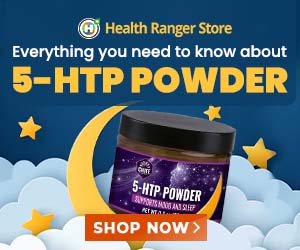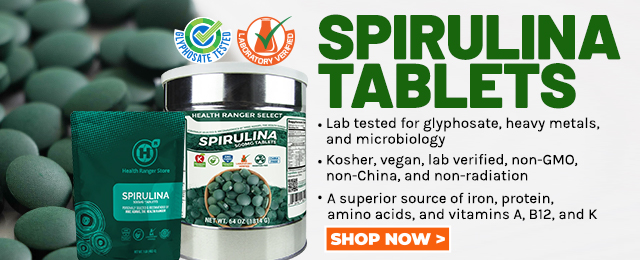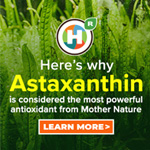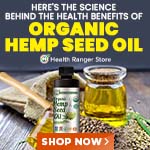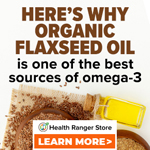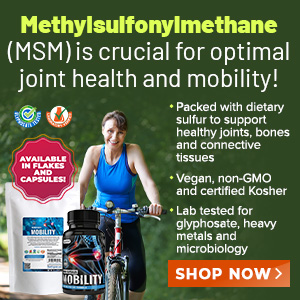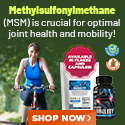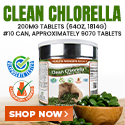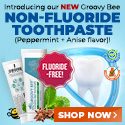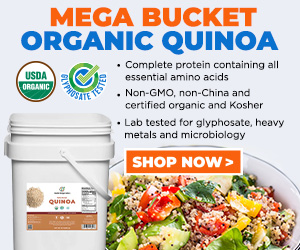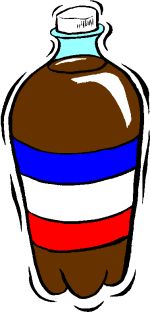
Soft drink company marketing tactics: the experts sound off
 Saturday, January 08, 2005 Saturday, January 08, 2005by Mike Adams, the Health Ranger Editor of NaturalNews.com (See all articles...) Tags: soft drinks, food politics, soft drink marketing |
- Oncologist warns of ‘terrifyingly aggressive’ cancers in children, linked to immune suppression from COVID vaccines
- NIH study, buried for decades, reveals that Flu Shots INCREASE elderly deaths, not prevent them
- Musk targets “strangely wealthy” lawmakers in DOGE probe, names Pelosi, McConnell, Schumer
- COVID-19 scandal linked to CANCER SURGE: Billionaire researcher sounds alarm
- Ancient kitchen secrets REVEALED: How garlic, ginger and green onions fight cancer and heart disease
- DARPA: The shadowy innovator behind the world’s most advanced military technologies
- Millionaire fitness coach charged in Tesla vandalism incident as anti-Musk attacks escalate
- “Ethically sourced” human “bodyoids” could usher in a new era of medical exploitation, raising disturbing ethical questions
- Newly released JFK files reveal Pentagon's role in creating Lyme disease and covid in the same lab
- European Court of Justice: Healthcare professionals who promoted or administered COVID-19 vaccines are CRIMINALLY LIABLE for any harm caused
- Britain’s descent into police state censorship: Parents raided for questioning their daughter’s school system online
- RFK Jr. is pushing Big Pharma ad ban - and corporate media is panicking
- Tackling the rubber waste crisis: Groundbreaking study reveals eco-friendly method to recycle tires
- Homesteading Boom: How families are escaping cities to grow their own food
- Joseph Farrell’s “The Cosmic War”: Did an interplanetary conflict reshape the solar system?
- NYT admits U.S. ran Ukraine war operations-Russia's victory exposes obsolete NATO tactics, says Mike Adams
- Utah governor allows ban on LGBT pride flags in public buildings and schools, will take effect without his signature
- Civil war is here – Multiple events, from conservatives being “swatted,” to attacks against Telsa owners, happening across America as Dem politicians are telling supporters to ‘fight in the streets”
- Newly released JFK files reveal Pentagon's role in creating Lyme disease and covid in the same lab
- CDC finally halts $11 billion COVID funding scam as health officials admit the ‘pandemic’ was a fraud
- Analysis: The coming economic collapse, a mass uprising and Trump's three secret weapons to halt the growing revolt
- Kiss Your Genetic Privacy Good-Bye! 23andMe Gets Green Light to Sell Your Intimate Genetic Details to Anyone They Want
- Dr. Suzanne Humphries makes bombshell appearance on Joe Rogan podcast, exposing vaccine industry deception back to POLIOMYELITIS
- DEADLY DECEPTION: How COVID vaccines increased mortality rates and why authorities hid the truth
- Woman contracts WORLD'S DEADLIEST VIRUS after unknowingly being given the WRONG VACCINE
- Oncologist warns of ‘terrifyingly aggressive’ cancers in children, linked to immune suppression from COVID vaccines
- Here are TEN all-natural ways to protect your garden without using harmful chemicals
- Black cumin seed oil emerges as a powerful ally against breast cancer and chronic inflammation
- The hidden dangers in your kitchen: How cooking methods impact diabetes, cancer and aging
- Trump's greatest betrayal so far: Accelerating Middle East wars, silencing dissent, and serving Zionist masters
- Senate Democrats deny censorship industrial complex existed, defend government's role in silencing dissent
- Sugar-free deception: Artificial sweeteners hijack hunger signals, fuel obesity epidemic, study warns
- “Independent” anti-Russia outlet MEDUZA faces COLLAPSE as US funding dries up
- NIH study, buried for decades, reveals that Flu Shots INCREASE elderly deaths, not prevent them
- The Health Ranger releases “Vaccine Zombie” song and music video, using AI-animated zombies for the music video
- Discovery of vast underground city beneath Giza pyramids challenges human history
- Newly released JFK files reveal Pentagon's role in creating Lyme disease and covid in the same lab
- California's social media censorship law struck down: A victory for free speech or a threat to online safety?
- EPA advisor admits the agency is funneling billions to climate groups ahead of Trump’s return to White House
- The Health Ranger releases “Vaccine Zombie” song and music video, using AI-animated zombies for the music video
- Dr. Mike Yeadon releases 15-minute testimony - WATCH - about genocidal intent of COVID “vaccines”
- Florida takes a stand: DeSantis proposes permanent ban on mRNA vaccine mandates
- Mike Adams releases country western hit single: Goin’ Back in Time is Comin’ Home
- “Why we influenced the 2020 elections”: Facebook files reveal the coordinated effort to bury the Hunter Biden laptop story
- Unpacking the Lies That We’ve Been Fed – new song and music video released by Mike Adams, the Health Ranger
- House Intelligence Committee calls for the ARREST and PROSECUTION of Dr. Anthony Fauci
- The pandemic as a tool for INDOCTRINATION: Understanding “The Indoctrinated Brain” by Dr. Michael Nehls
- Rep. Nancy Mace introduces bill to ban biological males from female facilities on federal property
- Mike Adams releases music poetry sensation: A Child of God
- Sugarcane extract superior to cholesterol-lowering drugs?
- Survival 101: Effective EMF blocking techniques
- Michigan sheriff announces criminal investigation into 2020 election crimes, Dominion Voting Systems
- Peter Rost exposes Big Pharma corruption in his book “The Whistleblower: Confessions of a Healthcare Hitman”
- Migrants are taking advantage of recent hurricanes to scam residents and loot their homes
- Red Cross issues warning to stop blood plasma donations from vaccinated people
- Scientists confirm: GENIUS brain function can be spontaneously unleashed in humans without any apparent cause
- EPA advisor admits the agency is funneling billions to climate groups ahead of Trump’s return to White House
- HYSSOP: What research reveals about the health benefits of this ancient holy herb
- Two containers with completed ballots fall out of truck in Florida
- Fully vaccinated about to see “tsunami” of illness and death, warns virologist
- Global leaders unite to clamp down on “misinformation” with UN-backed Cascais Declaration
- BREAKING: 2025 NDAA authorizes mandatory military draft of WOMEN across America… as Pentagon pursues global NUCLEAR war with both Russia and China at the same time
- Michael Yon warns of a ZIONIST TAKEOVER in Trump’s second administration
- BOMBSHELL: DNA testing kits are a SCAM to develop ethnic-specific bioweapons
- Ozempic and Wegovy weight loss drugs are injectable LIZARD VENOM PEPTIDES that may unleash a devastating wave of organ failure… side effects align with symptoms of SNAKE BITES
- Israeli soldiers accused of even more torture and abuse in the West Bank
- These 13 countries just signed an agreement to engineer a global FAMINE by destroying food supply
- NASA admits that climate change occurs because of changes in Earth’s solar orbit, and NOT because of SUVs and fossil fuels
- RFK Jr. clears key hurdle: Sen. Susan Collins backs controversial HHS nominee, signaling a new era for health policy
- Sermon 30: How Jesus reveals Caesar’s FAKE CURRENCY and FALSE AUTHORITY
- Coriander seeds: Ancient medicine backed by modern science
- Arizona officials claim Maricopa County needs 10-13 days to tabulate results of the election
Marion Nestle
Food Politics: How the Food Industry Influences Nutrition and Health
"In 1997 children spent nearly $8 billion of their own money on food and beverages, of which $1 billion each went for sweets and soft drinks. The amounts spent on food increase with age; in 1997, children aged 7-12 spent $2.3 billion of discretionary money on snacks and beverages, teenagers $58 billion."
"Children also influence a substantial proportion of the total annual sales of certain foods… 30 percent on soft drinks."
"Soft drink companies unapologetically name 8-to-12-year-olds as marketing targets. Advertisers encourage marketing directed to 9-year-olds as a logical consequence of the fact that children -- and girls in particular -- are maturing earlier."
"The reason they chose Coke or Pepsi had nothing to do with taste. . . . [We] think the advertising media targets their advertisements to appeal to teenagers because . . . [that's when you] develop buying habits and that's when you have more pressure to drink the brand that's cool."
"Researchers counted not a single commercial for fruits, vegetables, bread, or fish…. for the most frequently aired commercials such as those for sugared cereals, candy bars, and soft drinks."
"Soft drink companies are especially comprehensive in their approach to young consumers…. Coca-Cola puts its logo on so many items that it runs a chain of stores to sell them; it even has stores at international airports."
"Coca-Cola company, for example, sends multiple copies of "Coke cards" to "teen influentials" -- school officers, cheerleaders, and sports participants -- expecting that they will pass the extras along to their network of friends. These "educational" counting books and puzzles for young children require the use of cereals or cookies as tokens, provide discount coupons to encourage adults to purchase these products, and advertise the food throughout. These convert children into advertisers as well as consumers of soft drinks. "
"Critics also are troubled by studies showing that children do not readily distinguish Channel One's commercials from its entertainment, news, and public service programs and that they are confused about such distinctions. Children say, for example, that they believe Channel One advertisers such as Pepsi -Cola are "deeply committed to helping them cope with their emotional and psychological problems."
"Recent development in food marketing: large payments from soft drink companies to school districts in return for the right to sell that company's products -- and only those products -- in every one of the district's schools."
"The company's most evident marketing strategy is advertising. Coca -Cola’s global advertising budget exceeded $1.6 billion in the late 1990s. In 1999 the company spent $867 million for advertising in the United States alone -- $174.4 million for Coca-Cola beverages, $68.4 million for Sprite, $41.4 million for Minute Maid, and $17.6 million for Powerade"
"PepsiCo spends even more on advertising. Its total domestic advertising budget was $1.31 billion in 1999 -- $165 million for Pepsi beverages, $37.7 million for Mountain Dew"
"Some soft drink companies go so far as to license their logos to makers of infant-feeding bottles."
William Duffy
Sugar Blues
"A product like Coca–Cola, which contains known poisons and destroys [one’s] teeth and stomach, has one of the most stunning ad campaigns in the history of the Western world…. Coke executives have learned from extensive research that young America is searching for what is real, meaningful in this plastic world, and one bright ad executive comes up with the idea that it is Coke. Yep, Coke is the real thing and this is drilled into the minds of 97 percent of all young people between the age of six and nineteen until their teeth are rotting just like their parents' did."
"Another congressman asked if the doctor had made any tests of the effect of cola beverages on metal and iron. When the doctor said he hadn't, the congressman volunteered: "A friend of mine told me once that he dropped three tenpenny nails into one of the cola bottles, and in forty-eight hours the nails had completely dissolved." Sure," the doctor answered. "Phosphoric acid there would dissolve iron or limestone. You might drop it on the steps, and it would erode the steps coining up here.... Try it."
Eric Schlosser
Fast Food Nation
"In one of the most despicable marketing gambits," Michael Jacobson, the author of "Liquid Candy" reports, "Pepsi, Dr Pepper and Seven-Up encourage feeding soft drinks to babies by licensing their logos to a major maker of baby bottles, Munchkin Bottling, Inc." A 1997 study published in the Journal of Dentistry for Children found that many infants were indeed being fed soda in those bottles."
Greg Critser
Fat Land : How Americans Became the Fattest People in the World
"The soft drink industry alone spends upward of $600 million annually to promote its trash (compared with the National Cancer Institute's paltry $1 million budget for promoting fruit and vegetable consumption), such promotional campaigns can be highly effective"
Richard Brodie
Virus of the Mind:: The New Science of the Meme
"In psychology, the word conditioning often refers to implanting association-memes. When the Coca-Cola Bottling Company pays millions of dollars to show you young people in bathing suits having a good time drinking their products, they are conditioning you to associate good feelings with their brands."
"Another effect of meme evolution on advertising is the divergence of advertising content from product content. I remember noticing, as a kid, the Coca-Cola Company changing its slogan from "Drink Coca-Cola" to "Enjoy Coca -Cola "to "Things Go Better with Coke." Somewhere along the line, somebody realized that they didn't really have to discuss the product itself, just create a mood full of enough attractive elements that people took notice and felt good when they saw the product -- they created an association-meme in the customer. A recent Diet Pepsi campaign featured celebrities and showgirls smiling, cavorting, and grunting "uh-huh!" for half a minute. Not exactly a logical delineation of the product's features and benefits."
John Robbins
"The Food Revolution: How Your Diet Can Help Save Your Life and Our World"
"Coca-Cola and other soft drink companies are giving millions of dollars to cash-strapped school districts in return for exclusive rights to sell their products in schools. In one such deal, a school district in Colorado actually requires teachers to push Coca-Cola consumption in classrooms whenever sales fall below contractual obligations."
Earl Mindell PhD and Virginia Hopkins MA
Earl Mindell's New Vitamin Bible
"There's a good chance that one of the leading contributors to osteoporosis in the U.S. is carbonated soft drinks containing phosphorus. Research has shown a direct link between too much phosphorus and calcium loss."
H J Roberts MD
Aspartame (Nutrasweet): Is It Safe?
"Many TV commercials featuring household-name stars are targeted to child viewers. A major manufacturer of aspartame-containing soft drinks has already taken aim at children watching Saturday morning television, known as the "moppet market" (The Wall Street Journal December 9, 1988, p.B-1). Producers had previously avoided such targeting due to concern over the unique vulnerability of children, and the possible exacerbation of obesity among sedentary young video viewers."
Soft drinks at FETCH.news
Get independent news alerts on natural cures, food lab tests, cannabis medicine, science, robotics, drones, privacy and more.
 About the author:Mike Adams (aka the "Health Ranger") is a best selling author (#1 best selling science book on Amazon.com) and a globally recognized scientific researcher in clean foods. He serves as the founding editor of NaturalNews.com and the lab science director of an internationally accredited (ISO 17025) analytical laboratory known as CWC Labs. There, he was awarded a Certificate of Excellence for achieving extremely high accuracy in the analysis of toxic elements in unknown water samples using ICP-MS instrumentation. Adams is also highly proficient in running liquid chromatography, ion chromatography and mass spectrometry time-of-flight analytical instrumentation.
About the author:Mike Adams (aka the "Health Ranger") is a best selling author (#1 best selling science book on Amazon.com) and a globally recognized scientific researcher in clean foods. He serves as the founding editor of NaturalNews.com and the lab science director of an internationally accredited (ISO 17025) analytical laboratory known as CWC Labs. There, he was awarded a Certificate of Excellence for achieving extremely high accuracy in the analysis of toxic elements in unknown water samples using ICP-MS instrumentation. Adams is also highly proficient in running liquid chromatography, ion chromatography and mass spectrometry time-of-flight analytical instrumentation.
Adams is a person of color whose ancestors include Africans and Native American Indians. He's also of Native American heritage, which he credits as inspiring his "Health Ranger" passion for protecting life and nature against the destruction caused by chemicals, heavy metals and other forms of pollution.
Adams is the founder and publisher of the open source science journal Natural Science Journal, the author of numerous peer-reviewed science papers published by the journal, and the author of the world's first book that published ICP-MS heavy metals analysis results for foods, dietary supplements, pet food, spices and fast food. The book is entitled Food Forensics and is published by BenBella Books.
In his laboratory research, Adams has made numerous food safety breakthroughs such as revealing rice protein products imported from Asia to be contaminated with toxic heavy metals like lead, cadmium and tungsten. Adams was the first food science researcher to document high levels of tungsten in superfoods. He also discovered over 11 ppm lead in imported mangosteen powder, and led an industry-wide voluntary agreement to limit heavy metals in rice protein products.
In addition to his lab work, Adams is also the (non-paid) executive director of the non-profit Consumer Wellness Center (CWC), an organization that redirects 100% of its donations receipts to grant programs that teach children and women how to grow their own food or vastly improve their nutrition. Through the non-profit CWC, Adams also launched Nutrition Rescue, a program that donates essential vitamins to people in need. Click here to see some of the CWC success stories.
With a background in science and software technology, Adams is the original founder of the email newsletter technology company known as Arial Software. Using his technical experience combined with his love for natural health, Adams developed and deployed the content management system currently driving NaturalNews.com. He also engineered the high-level statistical algorithms that power SCIENCE.naturalnews.com, a massive research resource featuring over 10 million scientific studies.
Adams is well known for his incredibly popular consumer activism video blowing the lid on fake blueberries used throughout the food supply. He has also exposed "strange fibers" found in Chicken McNuggets, fake academic credentials of so-called health "gurus," dangerous "detox" products imported as battery acid and sold for oral consumption, fake acai berry scams, the California raw milk raids, the vaccine research fraud revealed by industry whistleblowers and many other topics.
Adams has also helped defend the rights of home gardeners and protect the medical freedom rights of parents. Adams is widely recognized to have made a remarkable global impact on issues like GMOs, vaccines, nutrition therapies, human consciousness.
In addition to his activism, Adams is an accomplished musician who has released over a dozen popular songs covering a variety of activism topics.
Click here to read a more detailed bio on Mike Adams, the Health Ranger, at HealthRanger.com.
Take Action: Support Natural News by linking to this article from your website
Permalink to this article:
Embed article link: (copy HTML code below):
Reprinting this article:
Non-commercial use OK, cite NaturalNews.com with clickable link.
Follow Natural News on Facebook, Twitter, Google Plus, and Pinterest
Science News & Studies
Medicine News and Information
Food News & Studies
Health News & Studies
Herbs News & Information
Pollution News & Studies
Cancer News & Studies
Climate News & Studies
Survival News & Information
Gear News & Information
News covering technology, stocks, hackers, and more



"Big Tech and mainstream media are constantly trying to silence the independent voices that dare to bring you the truth about toxic food ingredients, dangerous medications and the failed, fraudulent science of the profit-driven medical establishment.
Email is one of the best ways to make sure you stay informed, without the censorship of the tech giants (Google, Apple, Facebook, Twitter, YouTube, etc.). Stay informed and you'll even likely learn information that may help save your own life."
–The Health Ranger, Mike Adams











